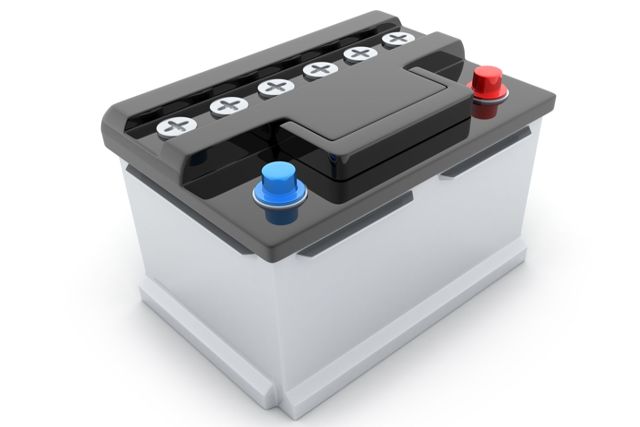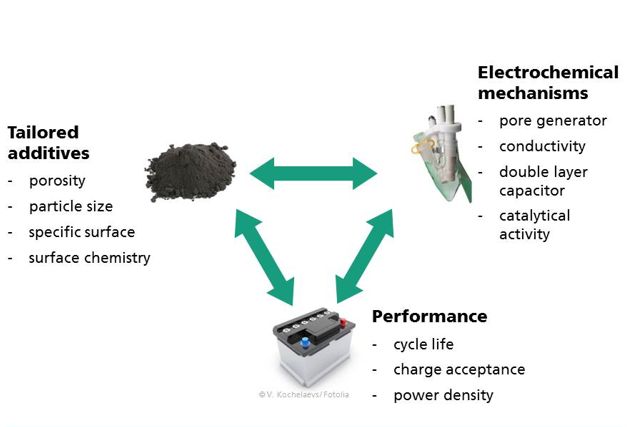Faster, lighter, better:
“AddESun” A New Generation of Lead-Acid Batteries


Whether in use as starter battery in vehicles, as power back-up, or for the storage of energy from renewable sources: Lead-acid batteries are among the oldest and most common battery systems in Germany. About 200 000 tons of them come to market each year. And their disposal is excellently organized: in Germany, waste batteries undergo a well-established recycling by manufacturers and processors. But the turnaround in German energy policy is posing new demands on electrochemical energy storage systems. Electric vehicles and stationary storage units for photovoltaic systems, for instance, look for long service lives and high power densities. The battery experts of the Fraunhofer R&D Center Electromobility Bavaria located at the Fraunhofer Institute for Silicate Research ISC now joined forces with a consortium of partners from industry and research to shape up this old system and make it fit for the future.
The collaborative project AddESun aiming to safeguard the future of lead-acid batteries was launched in September 2017. The list of project goals includes a more sustainable production, improved charging behavior, longer service life and higher power density. The key task of researching new additives and their effect on battery properties was assigned to the Fraunhofer ISC. Electrochemical investigations and model-supported analyses will help gain a better understanding of the effect mechanisms of addidives in lead-acid batteries. The information will be used to synthesize new or to optimize old materials. The systematic approach is intended to improve service life and augment energy density by up to 30 percent. A battery demonstrator with an energy capacity of 30 kWh – equal to a 200 km range for an electric vehicle – will serve to evaluate and verify the findings.
“Our task within the AddESun project is to investigate the correlation between the chemical and physical structure of the additives and to understand what part they play within a battery”, says Jochen Settelein, AddESun project leader at the Fraunhofer ISC. “Special attention will be paid to the effect of additives on a battery‘s mechanical stability, conductivity and on the porosity of the active mass.” Testing will take place on a test cell developed by the Fraunhofer researchers and ideally representing the lead acid system. The test cell was designed to enable the transfer of standardized tests to lab scale almost without any artefacts to close the gap between research and application. AddESun targets a key technology which is expected to bring best benefits to German medium-sized companies along the entire value chain, from production to recycling. Project results will allow immediate implementation in existing plants to strengthen German players in the international arena and help them secure a sustainable market position.
Overall project volume is 3.41 million euros for a term of three years with a 60 percent funding from the German Federal Ministry of Education and Research. Project aim is to provide new input on innovative materials that will put industry partners in the position to produce improved lead-acid battery systems. Among the research partners are Exide Technologies Operations GmbH (battery manufacturer), Evonik Resource Efficiency GmbH, Penox GmbH, SGL Carbon GmbH and the Institut für Stromrichtertechnik und Elektrische Antriebe ISEA at the RWTH Aachen (simulation).
The “AddESun” project is coordinated by EXIDE Technologies Operations GmbH & Co. KG.
Project budget is 3.41 million euros – with a 60% federal funding for three years.
Grant agreement: 13XP5043F
Partners:
EXIDE Technologies Operations GmbH & Co. KG | Büdingen
Evonik Resource Efficiency GmbH | Hanau
PENOX GmbH | Ohrdruf
SGL Carbon GmbH | Meitingen
RWTH | Aachen
For more information look at our Website of Fraunhofer R&D Center for Electromobilty Bavaria.
Last modified: